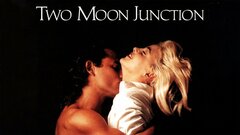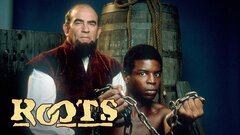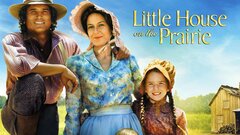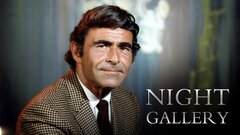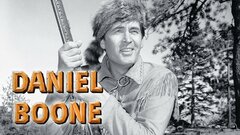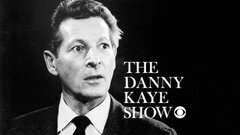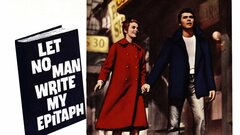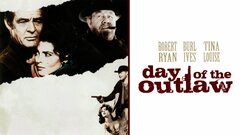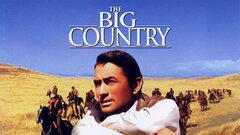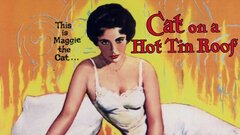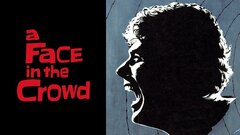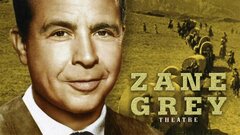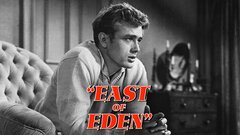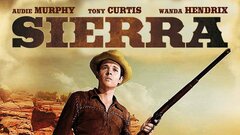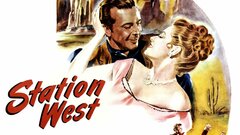Described by one writer as "a character long before he became an actor," Burl Ives went from humble origins to become one of the world's most beloved folk singers as well as a widely respected film, stage, radio and television performer. Ives was able to captivate audiences with his incredible voice, vast repertoire of traditional ballads - more than 3,400, according to the Library of Congress - and a gentlemanly, homespun persona.
After establishing himself on radio as the "Wayfarin' Stranger" and on Broadway in hits like "Sing Out, Sweet Land" (1944-45), Ives became a much-in-demand character actor via such major movies as "East of Eden" (1955), "Cat on a Hot Tin Roof" (1958) and "The Big Country" (1958), winning a Best Supporting Actor Academy Award for the latter.
In between ongoing film, stage, and radio work, Ives continued to rack up a truly impressive array of best-selling songs, including "Blue Tail Fly," "Big Rock Candy Mountain" and "A Little Bitty Tear." He also garnered two more hits via his participation in Rankin-Bass' beloved "Rudolph, the Red Nosed Reindeer" (NBC, 1964), which would become a part of the TV Yuletide lineup every year since its original airing.
During a professional career lasting more than five decades, Ives entertained audiences all over the world, made several hundred recordings heard on over 90 records, and more than earned himself the oft cited title of America's greatest folk singer.
Burl Icle Ivanhoe Ives was born in Hunt Township, IL on June 4, 1909 to a poor family of tenant farmers. Ives gave his first public performance at age four, when he was asked to sing at an Old Soldiers' reunion. Displaying an aptitude at football, the strapping youth decided to become a coach. Before completing his studies at Eastern Illinois State Teachers College, he left school and began hitchhiking across country, earning a living by singing wherever anyone would pay him for his services.
Describing himself during his early years on the road as "a tourist without funds" rather than a hobo, Ives enhanced both his musical and life experience by visiting many different towns and cities in the United States, absorbing local culture and singing wherever he found an audience. By the early 1930s, Ives had made his way out to California with his banjo, where he lived a hand-to-mouth existence working in restaurants and speakeasies. Ives committed hundreds of folk songs to memory and could perform any of them on demand.
This incredible ability, coupled with his salty, down-home sense of humor, genuine emotions and eminently relaxed style easily won over most audiences. Upon taking voice lessons to enhance his talents, Ives made his Broadway debut with 1938's "The Boys from Syracuse," ironically, in a part that offered no opportunity to sing. However, within two years, he was a regular presence on the radio with the 15-minute CBS program "Wayfarin' Stranger."
Well on his way to becoming one of America's most beloved balladeers, he was back on Broadway that year - and singing this time - in "Heavenly Express." Ives' stage and radio careers were put on hold when he was inducted into the army, but his talents were not wasted as he was assigned to perform in the cast of Irving Berlin's patriotic musical "This is the Army" (1942-44), and remained a part of that company for 18 months.
Upon discharge for medical reasons, Ives earned his first Broadway starring role in "Sing Out, Sweet Land" (1944-45). In 1946, Ives decided he wanted to try his hand at film acting, so he grew a beard and had a photographer shoot a series of stills of him in dramatic poses. After a false start at MGM, where he was briefly hired for a part in "The Great Sinner" but replaced with name star Walter Huston, Ives made his film debut in "Smoky" (1946), an adaptation of Will James' classic children's novel.
Additional roles followed in another horse story, "Green Grass of Wyoming," as well as "Station West" and "So Dear to My Heart" (all 1948). Ives also published his autobiography, The Wayfaring Stranger (which he later admitted was not always entirely truthful), that same year. Additionally that decade, the singer's historically invaluable collection of 3,400 ballads was added to the Library of Congress, and the first of many Ives records began to appear in stores, including the six-album collection Historical America in Songs. He also performed concert tours, sometimes covering 48 states and a few international dates, as well as finding time to continue singing on radio.
Returns to Broadway in "She Stoops to Conquer" (1949-1950), "Paint Your Wagon" (1951-52), and "Show Boat" (1954) followed, but Ives' career was temporarily sidelined in 1952, when he was called to testify before The House Committee on Un-American Activities, where he admitted having attended meetings put on by a leftist group. Ives' decision to cooperate and name names created a rift between himself and some of his fellow folk singers, but now able to resume working, he was cast in his first notable film role, as a small-town sheriff, in Elia Kazan's critically acclaimed "East of Eden" (1955).
He also enjoyed another triumph that year, earning the acting role he is most identified with, Big Daddy Pollitt, in the acclaimed Broadway adaptation of Tennessee Williams' "Cat on a Hot Tin Roof" (1955-56), a part he would reprise in Richard Brooks' 1958 film version. He won an Oscar for his larger-than-life supporting turn as a bitter cattle rancher in William Wyler's epic Western "The Big Country" (1958), and contributed memorable performances to the Eugene O'Neill adaptation "Desire Under the Elms" (1958), "Wind Across the Everglades" (1958), the comic spy caper "Our Man in Havana" (1959), "Let No Man Write My Epitaph" (1960), and "The Spiral Road" (1962).
Another signature role for the entertainer came when he lent his incredible voice to Sam the Snowman, narrator of the Rankin-Bass children's classic, "Rudolph, the Red Nosed Reindeer" (NBC, 1964), which became a Christmas TV perennial and spawned two more hit songs for Ives. He also did voice work for the animated feature "The Daydreamer" (1966) and earned a Grammy Award for the album Chim Chim Cheree and Other Children's Choices.
Additional film roles came in the comedies "The Brass Bottle"(1964), where he played a genie; the belated "Mister Roberts" sequel "Ensign Pulver" (1964), and "Those Fantastic Flying Fools" (1967). He also earned a final credit on Broadway with the titular role in the Ira Levin thriller, "Dr. Cook's Garden" (1967) and made periodic trips to television, notably as the star of the short-lived sitcom "O.K. Crackerby!" (ABC, 1965-66), and in a recurring part on the final season of "The Bold Ones: The Lawyers" (NBC, 1969-1972).
With the rise of folk singers like Bob Dylan, Joan Baez, and The Kingston Trio in the early '60s, Ives opened a new phase of his career, successfully adding The Nashville Sound of country and western to his repertoire, enjoying several more hit recordings. The success of those younger singers also caused a sales spike in Ives' back catalog, giving him a new generation of fans.
Ives' remaining features were largely forgettable and played mostly on his established down-to-earth persona, though there were a few unusual credits, like the U.S.
/Japanese co-production "The Bermuda Depths" (ABC, 1978), Sam Fuller's controversial yet little-seen racial drama "White Dog" (1982) and Zalman King's silly soft-core outing "Two Moon Junction" (1988), which turned out to be Ives' last film. With his grandfatherly appeal, Ives was a natural for family entertainment, providing the voice of Sam the Eagle in the Disneyland attraction "American Sings" and appearing in such children's features as "Baker's Hawk" (1976), "The New Adventures of Heidi" (NBC, 1978), and "Earthbound" (1981).
He also provided a voice for the U.S. version of the Hungarian animated feature "Hugo the Hippo" (1976) and narration for the made-for-TV "Return of the Jedi" spin-off, "The Ewok Adventure" (ABC, 1984). Over the years, several book collections of Burl Ives' songs were published, including such standards as "Blue Tail Fly," "Have a Holly Jolly Christmas," "Silver and Gold," "A Little Bitty Tear," "Big Rock Candy Mountain," and "Foggy Dew."
A long-time supporter of The Boy Scouts of America, he frequently promoted the group and narrated a 1977 film about the scouts' National Jamboree. Ives died from the effects of mouth cancer on April 14, 1995, two months short of his 86th birthday.
By John Charles



